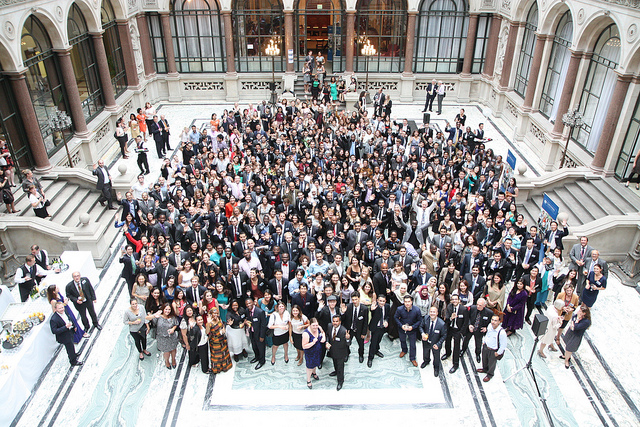12th August 2015 Chevening, UK
How can the youth of today shape the world of tomorrow

In a world full of social, political, and economic challenges that transcend geographic boundaries, the international community requires new and diverse perspectives to resolve urgent global issues.
The 193 member states of the United Nations recently came to a consensus on 17 sustainable development goals that the international community will commit to tackling by 2030. From gender equality and food security, to climate change and peace-building, these goals may appear disparate yet they are intrinsically interconnected. There is not one corner of this planet that is not potentially affected by at least one of the 17 goals.
Following years of intense lobbying and tense negotiations, UN secretary general Ban Ki-Moon declared that these new development goals are ‘the people’s agenda’. However, to achieve the people’s agenda, the people themselves should be equipped to lead the process of change, and through Chevening a generation of leaders capable of addressing the most pressing of national and global issues is being developed.
Chevening is the UK government’s international awards scheme aimed at developing global leaders. Chevening Scholarships aim to empower young professionals with the expertise, networks, and confidence to become influential leaders in their chosen fields and in their home countries. The scholarships are offered in over 160 countries and territories to enable successful candidates to pursue a one-year Master’s degree in any subject at any UK university. In just a few weeks’ time, we anticipate that 1,800 new scholars will arrive to begin a life-changing year living and experiencing the UK whilst undertaking stimulating courses at over 100 different universities here.
Chevening Scholars are personally selected for having displayed leadership traits. Many scholars come from countries that have already seen – or are still undergoing – social, political, or economic turbulence, turbulence that typically seems to adversely affect young people disproportionately. As such, Chevening Scholars are acutely aware of the issues that young people all over the world face, and are also aware of the impact and contribution that young people can make to society, if they take – or are given – the responsibility to become active agents of change.

Looking ahead at the Chevening Scholarship programme, it is apparent that scholars value the opportunity to engage in the sustainable development agenda. Many are already active in their own communities, and Chevening gives them the chance to meet people from all over the world who share interests, passions, and goals. Through conferences, roundtables, community projects, and digital engagement, Chevening also provides a platform for future leaders to espouse their own work, challenge norms, learn from each other, and collaborate across borders on causes that matter to them.
Whether it’s Woon King Chai, who successfully campaigned to change a 30 year-old law in Malaysia that prohibited students from having a political voice, or Sweta Mangal who has co-founded a service that saves lives in India through coordinating a fleet of emergency rapid response vehicles (both in their 20s at the time), Chevening’s recent track record in attracting and developing positive changemakers is encouraging.

Throughout history, from Mandela to Malala, young people have striven to bring about positive social change, determined to ensure that the world they leave is a better and fairer place than the one they entered. In a world full of challenges, we need leaders with a global outlook who dare to stand up and who dare to stand out and do something different. People often say that ‘today’s youth are tomorrow’s leaders’. However, Chevening has demonstrated that young people are already leading change in their communities. It’s never too early to start shaping our world, and Chevening Scholars can draw on a global network of more than 44,000 other leaders to bring about change more effectively.
Applications for Chevening Scholarships for 2016/2017 are now open and there is no better time to apply for this opportunity. Visit www.chevening.org/apply for information on how to do so. Applications will remain open until 3 November.
Michael Scott-Kline,
Director of Chevening Secretariat
I really like the pages